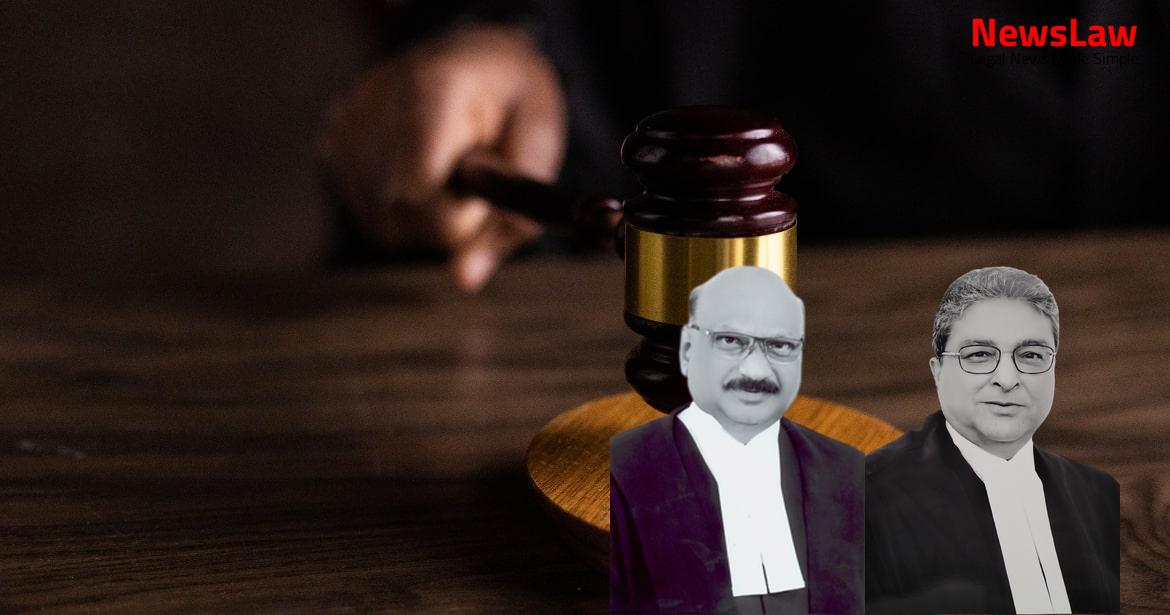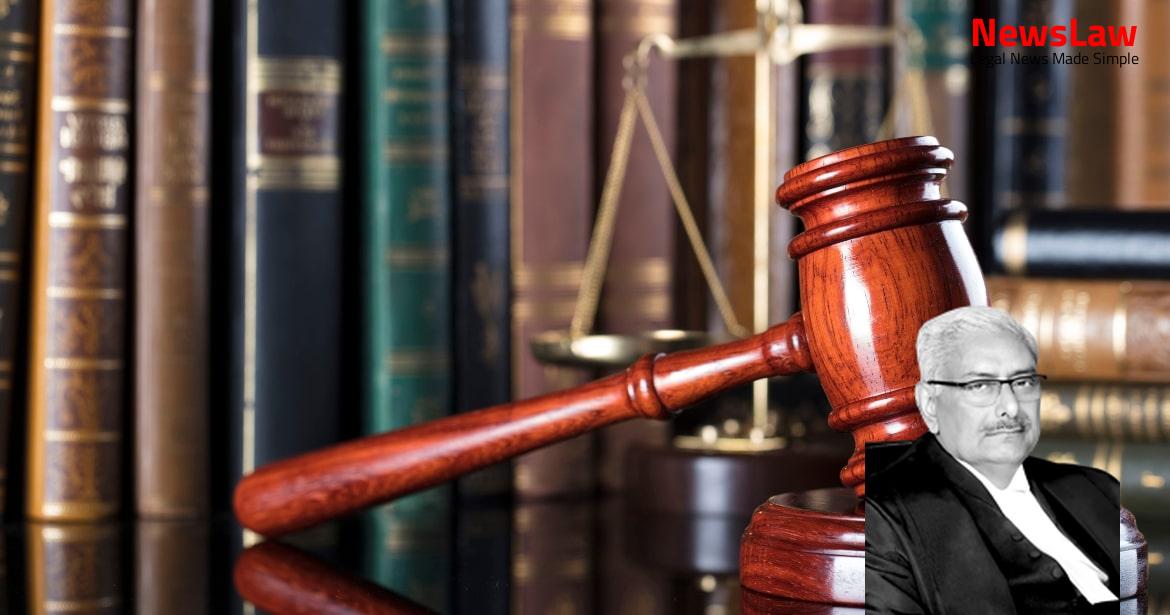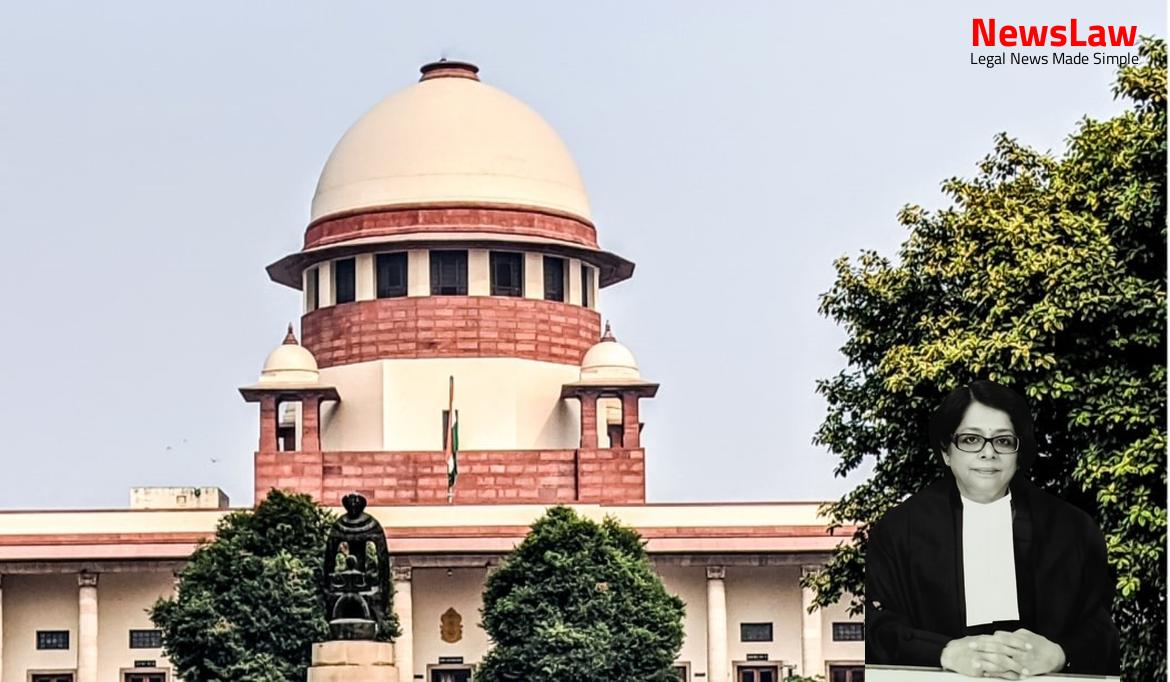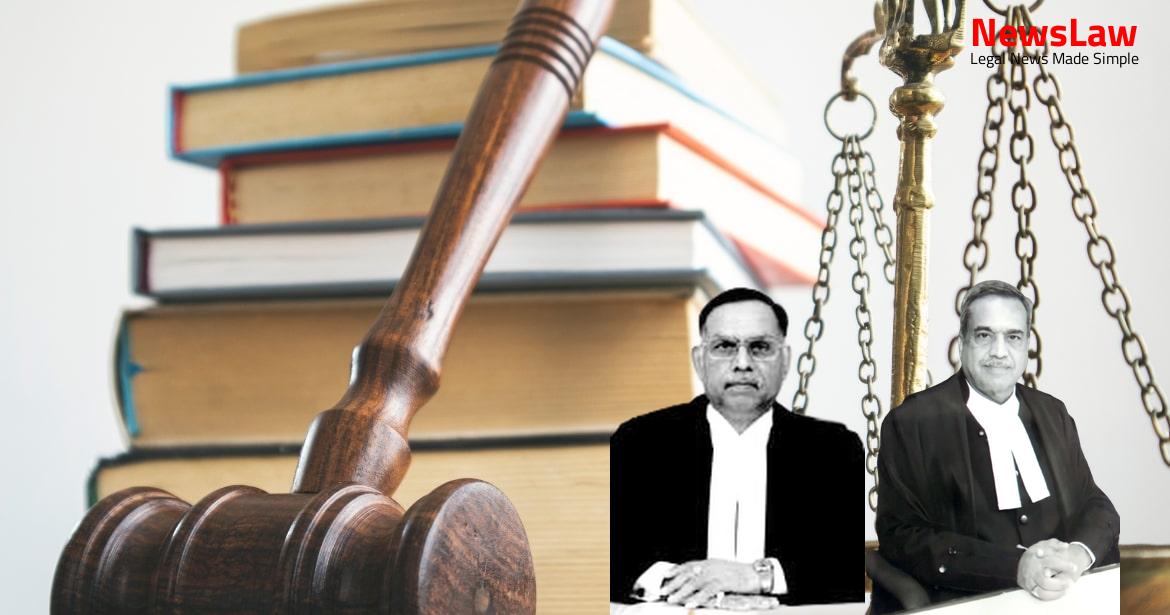Delve into the intricate legal analysis conducted by the court to prevent abuse of court processes in a case involving ongoing litigation. The court’s careful scrutiny and quashing of criminal proceedings underscore the importance of upholding justice and curbing frivolous litigations. Stay tuned to explore the details of the judicial decisions.
Facts
- The Appellants and Respondent No. 2 are neighbors who have been in ongoing litigation since 2006.
- On 5.08.2012, the son of Appellant No. 1 filed an NCR against Respondent No. 2 and his wife, alleging offenses of assault and threats.
- Respondent No. 2 later filed a counter-alleged NCR against the Appellants for similar offenses.
- There was a significant delay in the investigation and trial stages of the proceedings.
- Prior disputes between the parties date back to 2006.
- A physical altercation occurred on 5.08.2012, leading to further legal actions.
- New and wild allegations were added in a private complaint, differing from earlier versions of events.
Also Read: Interpretation of Insurance Policy Provisions in Liability Determination
Arguments
- Law laid down in T.T. Antony case is crucial in determining the permissibility of a second complaint in regard to the same incident filed as a counter-complaint.
- Prohibiting a second complaint could have serious consequences as it would force the individual to repeatedly surrender their liberty and time before the police and courts for each case.
- The conclusion that a second complaint in the same incident is impermissible would violate Article 21 of the Constitution, which guarantees the right to life and liberty except by due process of law.
- In T.T. Antony case, the court clearly stated that the registration of a second FIR (not a cross-case) would be against Article 21 of the Constitution.
Also Read: Interpretation of Section 195(1)(b)(i) in Relation to Fabricated Evidence
Analysis
- The Court in the Upkar Singh case prohibited any further complaint by the same complainant against the same accused after the case has been registered, considering it as an improvement on the original complaint.
- The delay in filing the private complaint, material improvements from the earlier complaint, and the history of ill-will between the parties suggest malicious intent on the part of the complainant.
- The Magistrate issued process against the appellants based on a vexatious private complaint, ignoring the voluntary confession and penalty accepted earlier by one of the appellants.
- The Learned Sessions Judge misunderstood the scope of Section 200, CrPC while favoring the respondent, possibly to bring the private complaint within the period of limitation.
- The courts took extra interest in improving the case for the complainant, especially by introducing Section 506 Part II, IPC without a valid basis.
- Filing a delayed private complaint without disclosing material facts indicates mala fide intentions, abusing the court system for personal motives.
- The appellate court has the duty to dismiss frivolous litigations in the early stages by discharging the accused if necessary to prevent abuse of judicial processes.
- The abuse of court processes by the respondent in the present case highlights the need for lower judiciary involvement in curbing such vexatious litigations.
- Material improvements made in the subsequent private complaint by the same complainant against the same accused were not justified, as seen in the Upkar Singh case.
- Section 202 CrPC allows the Magistrate to scrutinize a complaint to prevent frivolous claims.
- The Magistrate must find material to support the allegations in the complaint.
- The power to issue summoning orders is crucial and must be used judiciously.
- Criminal law should not be set into motion frivolously.
- Magistrates play a central role in seeking justice and truth in criminal proceedings.
- The Magistrate must identify frivolous litigation early and dispose of it.
- Allowing multiple complaints on the same incident can entangle the accused in numerous proceedings.
- The Trial Judge plays a crucial role in the administration of justice.
- The powers of Magistrates have grave repercussions on individual rights and liberty.
- The trial courts and Magistrates are vital in curbing abuse of court processes.
- The Judge has the power to order production of material and ask questions at any time.
- Litigants pursuing frivolous proceedings cannot claim unlimited rights on court time and public money.
- The Court’s inherent powers allow for giving preference to equity and justice over procedural strictness.
- The Court must balance the power to investigate offences with the individual’s right to be free from frivolous prosecutions.
- Quashing of criminal proceedings is a constitutional duty of the Court if initiated by misleading the court and abusing its processes of law.
- Exercise of powers under Article 142 to bring peace between parties involved in prolonged litigations since 2006.
- All litigations between the parties arising from the incident in question are quashed for the sake of complete justice and resolution.
Decision
- Proceedings in Complaint Case No.2943/2018 and NCR No 158/2012 be quashed.
- Any other criminal cases related to the incident dated 5.08.2012 are also quashed.
- Criminal proceedings arising from NCR No.160/2012 (Crime No. 283/2017) initiated by the Appellants are quashed.
- The quashing of these proceedings is done in exercise of powers under Article 142 of the Constitution.
- The appeal is allowed as per the above terms.
- The High Court’s judgment in Miscellaneous Petition No 2561 of 2020 is set aside.
Case Title: KRISHNA LAL CHAWLA Vs. STATE OF U.P. (2021 INSC 160)
Case Number: Crl.A. No.-000283-000283 / 2021



